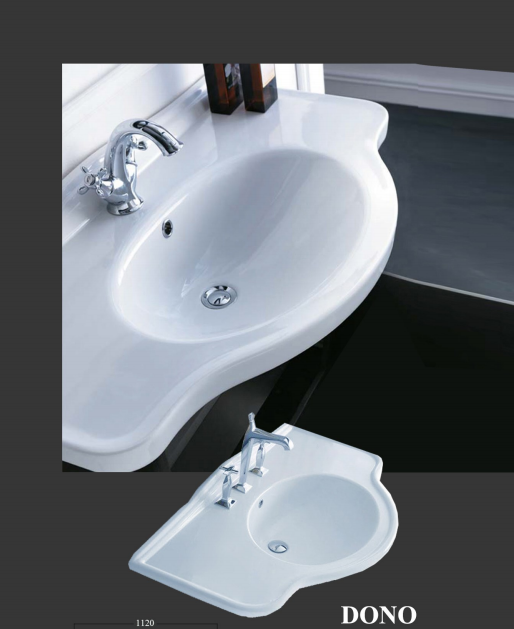Summary:
In today’s fast-paced business environment, smart sanitary solutions are becoming increasingly important for commercial buildings, offering enhanced functionality, eco-friendliness, and improved user experience. This article explores the growing trend of intelligent toilets, wash basins, and cabinet basins in modern commercial spaces such as office buildings and hotels. Additionally, it highlights the role of smart sanitary products in boosting environmental sustainability through water conservation and energy efficiency.
Smart Toilet Solutions for Commercial Buildings
In commercial buildings, especially those accommodating large numbers of people daily, the demand for innovative sanitary solutions has significantly risen. One of the key trends is the adoption of the intelligent toilet or smart toilet. These toilets, equipped with advanced features such as automatic flushing, seat warming, and hands-free operation, are redefining the standard of hygiene in shared spaces.
Smart toilets are designed to be more hygienic and user-friendly, offering features that reduce the need for manual operation, which is especially beneficial in high-traffic areas such as malls, airports, and corporate buildings. The presence of an automatic flushing system ensures that the toilet is always clean after each use, which significantly contributes to better hygiene levels in public restrooms.
Moreover, the intelligent toilet also enhances water efficiency. With built-in sensors, these toilets can detect the amount of water needed for each flush, thereby minimizing water waste. This makes them an excellent choice for environmentally conscious commercial projects. As building designs focus more on sustainability, smart toilets are becoming a staple in eco-friendly architecture.
The integration of smart features doesn’t stop at the toilet itself. Complementary fixtures such as the wash basin and toilet sink are also being integrated with touchless operations, which reduce the spread of germs and increase water efficiency. For any business looking to upgrade its facilities, investing in smart toilet technology is not only a move toward modernity but also a step toward environmental responsibility.
Innovative Smart Wash Basins and Cabinet Basins for Offices and Hotels
The implementation of smart wash basins and cabinet basins in commercial spaces is gaining popularity as a way to improve both aesthetics and functionality. Hotels and modern office spaces are increasingly installing wash basins that come equipped with smart sensors, allowing for automatic water flow control, which can drastically reduce water waste while also ensuring a more hygienic environment.
In high-end commercial properties, cabinet basins provide an elegant and space-saving solution. These basins are often equipped with smart technology, such as touch-free faucets, built-in soap dispensers, and temperature control features. This type of basin not only offers a sleek look but also optimizes space, which is crucial in smaller restrooms where functionality needs to meet design.
Hotels, in particular, benefit from integrating cabinet basins and wash basins that are both aesthetically pleasing and practical. Guests expect a certain level of luxury and convenience, and a smart wash basin can elevate the overall experience. The same goes for toilet sinks, which are increasingly being integrated with sensor-based technology to allow for minimal touch, ensuring both hygiene and comfort.
The trend of smart toilets and wash basins in commercial buildings reflects a shift toward creating spaces that not only look modern but also function more efficiently. These sanitary solutions, equipped with technology that prioritizes water and energy conservation, are becoming the norm in newly built or renovated commercial buildings. Whether in an office or a hotel, the presence of smart toilets and wash basins represents a commitment to sustainability and user satisfaction.
How Smart Sanitary Solutions Enhance Environmental and Water Efficiency
One of the most compelling reasons for incorporating smart sanitary solutions into commercial spaces is the significant improvement they offer in terms of environmental impact. Intelligent toilets and smart toilets, for instance, are designed with advanced water-saving technologies. These systems are often dual-flush, meaning that the toilet uses the appropriate amount of water depending on the waste. This feature alone can drastically reduce water consumption in commercial buildings, which is crucial for achieving sustainability goals.
In addition to water-saving toilets, smart wash basins and cabinet basins contribute to resource efficiency by using sensors to control water flow. Instead of leaving taps running, which is common in traditional setups, smart wash basins automatically shut off the water once a user’s hands are removed. This helps reduce water wastage, an important consideration for businesses striving to lower their environmental footprint.
Commercial buildings, particularly those aiming for certifications such as LEED or BREEAM, are increasingly required to demonstrate water conservation measures. Installing smart toilets, intelligent wash basins, and cabinet basins can play a major role in meeting these standards. Furthermore, these smart sanitary solutions also often come with energy-efficient components such as low-power sensors and eco-friendly materials, further adding to their green credentials.
In a world where environmental impact is a priority, businesses need to consider how their facilities impact the environment. By investing in smart sanitary products, including intelligent toilets and wash basins, companies can not only enhance user experience but also contribute to global sustainability efforts. For example, the toilet sink in a smart toilet setup may come with built-in greywater recycling, which allows water used in handwashing to be reused for flushing. This type of closed-loop system can drastically cut down water consumption, making the intelligent toilet an essential part of green building strategies.
Conclusion
The rise of smart sanitary solutions, including intelligent toilets, wash basins, and cabinet basins, is transforming commercial spaces such as offices and hotels. These advanced sanitary products not only enhance the user experience with touch-free, sensor-based technology but also contribute to sustainability through water conservation and energy efficiency. By adopting smart toilets and other innovative sanitary systems, businesses can create modern, environmentally friendly facilities that meet the demands of today’s eco-conscious consumers. In an era where sustainability is key, the integration of intelligent toilets and smart wash basins marks a significant step toward greener, smarter commercial buildings.

